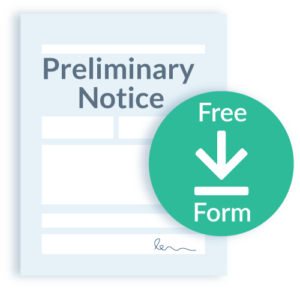Private projects
General contractors are not required to send notice on private projects.
No parties who contracted directly with the property owner are required to send preliminary notice in Kansas.
General contractors are not required to send notice on private projects.
No parties who contracted directly with the property owner are required to send preliminary notice in Kansas.
General contractors are not required to send notice on public projects.
Since GCs will not make a claim against their own bond for non-payment, they do not have bond claim rights, and have no preliminary notice requirement.
On new residential projects, subcontractors and suppliers must send notice on private projects.
On pre-existing residential projects, notice must be given to owner prior to filing lien.
Subcontractors and suppliers are not required to send notice on public projects.
Note, however, that if the bonds terms require preliminary notice, those terms control and are enforceable.
It depends. Any party who contracts directly with the property owner is not required to send notice prior to the filing of any lien. Also, no notice is required by any party if the project is non-residential.
Subcontractors/laborers/suppliers are required to send notice prior to filing a lien if performing work or furnishing materials to a residential project.
If the project is the repair, alteration, or remodeling of a pre-existing residential property (occupied by no more than two families and not used for commercial purposes), a Warning Statement must be sent to the owner. This notice informs the owner of the possibility of a mechanics lien being filed if proper payment is not made.
If the project is the construction of a new residential property (spec or custom residence occupied by no more than 2 families and not used for a commercial purpose), a Notice of Intent to Perform is required.
The Warning Statement must be sent prior to the filing of the lien.
The Notice of Intent to Perform must be filed and sent prior to the filing of the lien.
When the above notices are required, they must be provided prior to filing the mechanics lien, failure to do so is fatal to the mechanics lien claim.
The Warning Statement only needs to be “mailed” to the property owner. It may be best practice, however, to send the notice to the property owner by certified mail, return receipt requested.
The Notice of Intent to Perform must be filed in the office of the clerk of the district court in the county where the property is located. The notice should also be mailed to the property owner by certified mail, return receipt requested. It is crucial that the notice be recorded prior to the closing of escrow and transfer of the deed to a new owner. If this does not occur, any subsequent mechanics lien will not be effective against the interest of the new owner.
No. Notice is only required to be provided to the property owner.
Notices are considered delivered when mailed by certified mail, return receipt requested, and considered filed when recorded by the clerk of court. However, while the Kansas preliminary notice is considered delivered when sent, the burden still rests on the sending party to demonstrate that the notice was actually received.
In interpreting the state’s preliminary notice statute, a Kansas court in Owen Lumber Company v. Chartland (2007) rejected the “presumption of delivery” principal since the legal provision in the lien law explicitly required return receipt. Specifically, the court stated that “[w]ith respect to mechanic’s liens, the restricted notice requirement of Kan. Stat. Ann. § 60-103 replaces the presumption of delivery with the sureness of proof by the return receipt.” Read more about this here: How To Send Notice to Owners – Standard Certified Mail, or Certified Mail with Return Receipt Requested?
Kansas does not specifically require any preliminary notice to be given to preserve the right to make a bond claim on a public project. However, if the terms of the bond itself require preliminary notice to be given, those terms will control, it is therefore best practice to obtain a copy of the bond.
N/A, unless required by bond.
N/A, unless required by bond.
N/A, unless required by bond.
N/A, unless required by bond.
Whether a notice is necessary and/or you have complied with the notice requirements is dependent on a number of facts. See K.S.A. 60-1103a and K.S.A. 60-1103b. You need to balance the cost of having an attorney review the matter verses filing a defective lien.
The question should be – if the subcontractor files a lien is it enforceable? Based upon the facts you set out – the answer
is, no. If the facts might not be accurate or complete you should consult an attorney.
Your description of "hourly subcontractor" needs to be explored. I recomend you contact an attorney. You may be able to proceed through the Kansas Department of Labor, individually for violation of the Kansas Wage Payment Act, and/or filing a lien.
Depending on the stituation, a preliminary notice in Kansas may be referred to as a Warning Statement, or a Notice of Intent to Perform. While either of these is really a “preliminary notice” at heart, the two Kansas-specific terms are not interchangeable, as they relate to different notices which are required depending on whether the project is a remodel/repair, or new construction.
Kansas does not mandate preliminary notice be given by general contractors (or others with a direct contract relationship with the property owner), or by any project participant on a non-residential project.
Sub-contractors, laborers, and suppliers, on residential projects, on the other hand, are required to provide preliminary notice. If the project is an alteration or repair to an existing property, the project participant must send the owner a Warning Statement. Construction on a new project requires the project participant to send a Notice of Intent to Perform. Failure to send these notices in a timely manner will result in the invalidity of the lien.

First, download the Kansas preliminary notice form. This form was written by construction attorneys to meet the specific language and formatting requirements under Kansas statutes.

Next, fill your preliminary notice form out. Make sure you do this carefully, because making a mistake at this stage could invalidate your right to file a mechanics lien claim if you’re left unpaid. Re-check the information you include to ensure it’s 100% correct and accurate.

The notice should also be mailed to the property owner by certified mail, return receipt requested. It is crucial that the notice be recorded prior to the closing of escrow and transfer of the deed to a new owner. If this does not occur, any subsequent mechanics lien will not be effective against the interest of the new owner.
Select Preliminary Notice document.
Provide basic job information.
Levelset sends the document for you. Postage included!